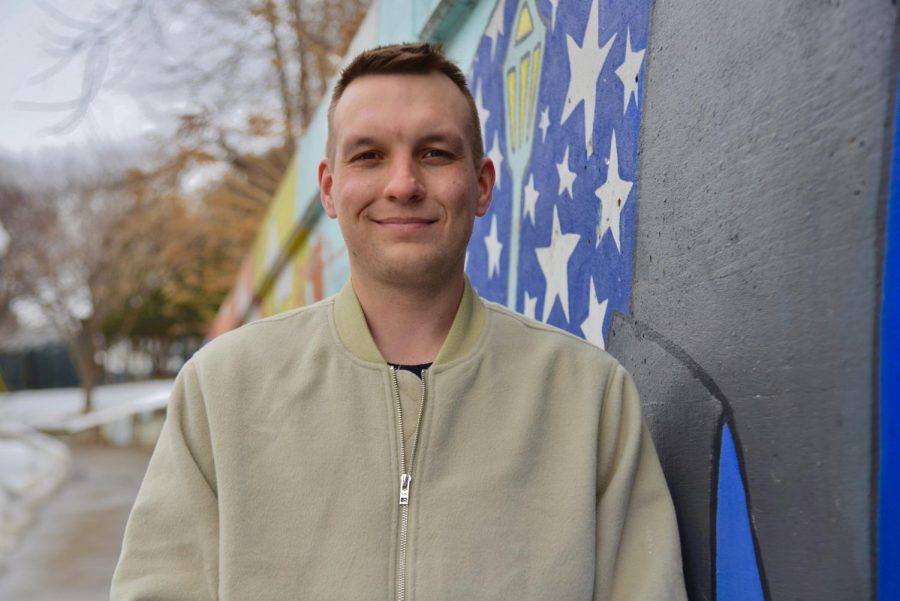In line with recent citywide efforts to explore policing alternatives in public safety, a branch under the Southeast Como Improvement Association (SECIA) is working to become a resource for the neighborhood’s residents.
Established in October of last year, Como Cares is a neighborhood safety organization hoping to provide safe and effective police-adjacent resources to Southeast Como residents. Cody Hoerning, the group’s co-founder and SECIA board member, said Como Cares was created from a philosophy of “watching out for your neighbors as opposed to just watching them.”
“The primary goal of the organization is to build community and trust among neighbors,” Hoerning said. “After that, we want to do what we can to help out our neighbors with anything they need.”
The organization hopes to be a go-to resource for community members facing homelessness, mental health crises and other domestic issues, but will also assist with house maintenance and yard care. The group is currently working on two parts of its mission: preventative engagement and active situation intervention.
The preventative work — which primarily deals with education and community-building efforts — has been an ongoing effort that has paralleled SECIA’s work in reimagining how it functions in the community. So far, the group has hosted several meetings to gather community feedback and plans to host monthly trainings on issues like harm reduction, mental health first aid and crisis de-escalation, among others.
Andrew Norton, Como Cares co-founder and SECIA board member, said he has especially enjoyed event planning and the opportunity to get to know his neighbors. He said their feedback has been very enlightening to the process going forward.
“I feel like it’s a great way to bring different voices to the table,” he said. “There’s been some feedback that individuals don’t really feel like we’re in a community right now because of COVID. So having like a game night gets everybody together and that’s something fun. But it’s also not like doing a chat where it might be awkward for them to engage.”
The team is still developing how it would function as an intervention resource. Some obstacles include building community trust and navigating victim privacy laws, which prevent local police departments from freely collaborating and handing out private information without certain permissions. Hoerning said he hopes someday Como Cares could respond to certain calls on behalf of police if a resident has opted in to allow that.
Collaborations between Como Cares and other neighborhood organizations have been successful. The group has been working with Southeast Seniors, the Dinkytown Unsheltered Neighborhoods Workgroup and the Aliveness Project — a community center for people living with HIV — to learn how to best expand and serve a variety of individuals living in the neighborhood.
Jessica Focht-Perlberg, the executive director of SECIA and another founding member of Como Cares, said several SECIA members support the organization and have been receptive to its mission and goals.
“In general, [SECIA] seems supportive … of this workgroup kind of digging into those ideas and thinking about what that looks like in terms of how we show up for residents in need in the neighborhood,” she said.
The group — which is currently internally funded — has begun searching and writing proposals for grants, most notably the Good Neighbor Fund, a grant that supports a variety of University-area communities.
For now, Hoerning said he looks forward to being there for his neighbors and changing the narrative of community aid.
“When [neighbors] see a problem — or what people think might be a problem — that like their first reaction is to call the police and have someone else deal with it,” he said. “People want to be able to help themselves if it’s safe to do so. [We’re trying to] find different ways to respond to some situations instead of that first instinctive reaction to have someone else deal with this.”




















Enn Arre
Feb 24, 2021 at 2:32 pm
This is an amazing step to help keep police from having to be called in the first place but calling it a “policing alternative” seems a stretch since prevention of events like homelessness, mental health crisis or domestic disputes are NOT in their job description to begin with! Those situations are the responsibility of other entities and the community at large to prevent and solve.
Police are NOT the group that is supposed to be solving homelessness, they are not mental health professionals or marriage counselors.
Police are there to respond to emergencies, help prevent crime and arrest those who are committing crimes against our neighbors and communities. We need them when we cannot stop a terrible situation in progress! They run toward dangerous situations as the rest of us retreat to save ourselves.
Also note that many issues attributed to policing injustice are actually part of the justice system (court system) and not related to policing activity. Police are acting upon an event at the moment it is happening, (such as pulling over a car that has been reported stolen) the justice system has to deal with figuring out what the crime was and punishment will be. There is a lot of injustice in that process! All of that comes AFTER an arrest.
I really hope communities can work hard at helping reduce the need for police to respond to emergencies that should have been foreseeable through the suggested preventative engagement and situation interventions.
A more accurate message would be “reduce the need for police” rather than “policing alternatives”